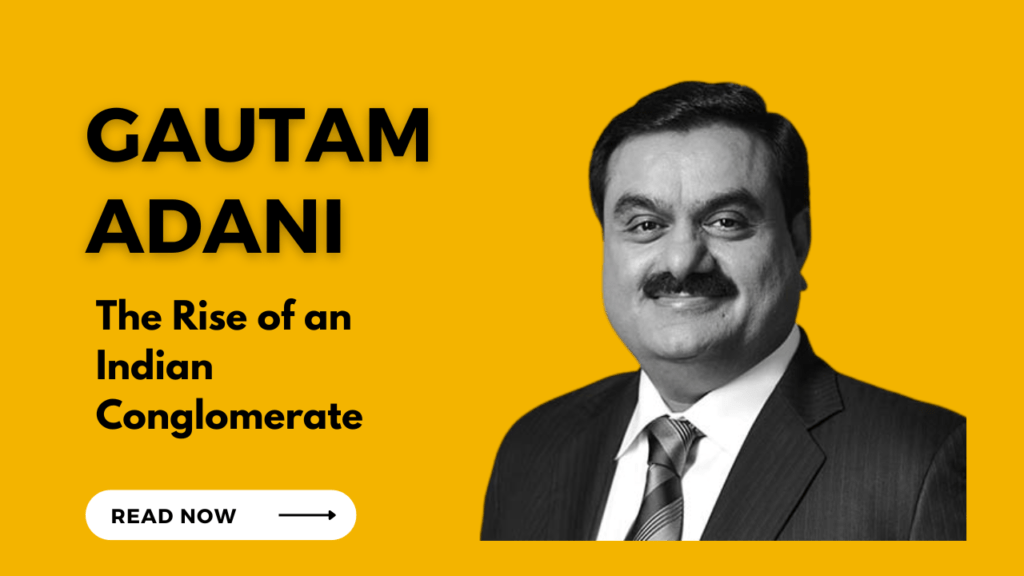The Adani Conglomerate: Driving India's Path to Economic Superpower

India stands on the verge of a significant economic transformation, positioning itself as a vital alternative to China for global investors. Prime Minister Narendra Modi, along with influential industrialists like Mukesh Ambani and Gautam Adani, is steering the country towards becoming a 21st-century economic powerhouse. Central to this narrative is the Adani Group, a conglomerate that is playing a pivotal role in shaping India’s future.
- Infrastructure and Digital Connectivity Boost
To drive economic growth, the Modi government has initiated a massive infrastructure overhaul, investing billions in roads, ports, airports, and railways. These efforts aim to enhance connectivity and streamline trade. Additionally, there is a strong emphasis on promoting digital connectivity, which is expected to significantly improve commerce and everyday life across the country.
- The Adani Conglomerate: Key Player in Economic Revolution
The Adani Group, led by Gautam Adani, is a crucial ally in this economic transformation. The conglomerate’s extensive business interests span multiple sectors, including infrastructure, logistics, energy, and agriculture, making it a cornerstone of India’s economic development.
- Economic Growth and Projections
In 2023, India’s economy was valued at $3.7 trillion, making it the fifth largest globally. This represents a significant leap, with the country climbing four spots in the global rankings during Modi’s decade in office, surpassing the United Kingdom. Analysts predict that India is well-positioned to grow at an annual rate of at least 6% in the coming years. However, to cement its status as an economic superpower, India should target an annual growth rate of 8% or more. Sustained growth at this rate could propel India to become the third largest economy, behind only the US and China, by 2027.
- Ethical Concerns and Market Reactions
Despite the positive outlook, the Adani Group recently faced setbacks. Norway’s central bank, Norges Bank, which manages the world’s largest sovereign wealth fund, has blacklisted Adani Ports due to ethical concerns related to human rights violations. This decision led to a drop in Adani Ports’ shares, with the company’s total market capitalization standing at approximately Rs 2.88 lakh crore following the announcement.
- Adani’s Agricultural Ventures
The Adani Group has a significant presence in India’s agricultural sector. Adani Agri Logistics Ltd. (AALL), a subsidiary of Adani Ports, has developed infrastructure to store and transport food grains. During the COVID-19 pandemic, AALL played a crucial role in dispatching 30,000 metric tonnes of food grains under the Pradhan Mantri Garib Kalyan Anna Yojana (PMGKAY) scheme. The group also operates private rail lines for transporting grain across the country, highlighting its extensive logistics capabilities.
- Impact on Farmers and Agricultural Economy
The entry of large private players like Adani into the agricultural sector has sparked debates and apprehensions among farmers. The government’s farm laws, aimed at facilitating private procurement, have been controversial. Farmers fear that these laws could lead to exploitation and unstable prices. Despite clarifications from the Adani Group that they do not control grain pricing, their extensive infrastructure and involvement in agricultural logistics indicate they stand to benefit significantly from the new laws.
- The Case of Basmati Rice
Adani Wilmar, a joint venture between the Adani Group and Singapore’s Wilmar International, has made significant strides in the food sector. The company exports rice, including the highly sought-after basmati rice, to markets like China. However, the dynamics of basmati pricing illustrate the broader challenges of private sector involvement in agriculture. Farmers in Punjab and Haryana, for example, have faced fluctuating prices, with buyers attributing drops to external factors like sanctions on Iran.
- Conclusion
The Adani Group is central to India’s journey towards becoming a 21st-century economic powerhouse. With significant investments in infrastructure, logistics, and agriculture, the conglomerate is driving the country’s economic development. However, ethical concerns and the impact on the agricultural sector pose challenges that need careful navigation. As India continues to grow, balancing rapid economic development with sustainable and equitable practices will be key to its success on the global stage.
